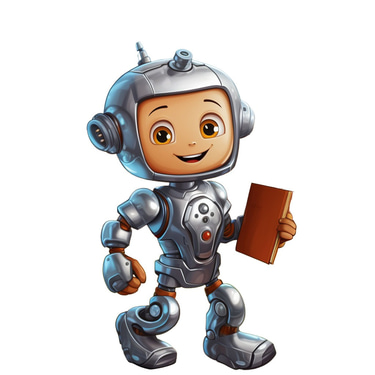AI in Sports: How AI Could Improve Training and Performance in Soccer
7/3/20244 min read


Introduction to AI in Soccer
Artificial intelligence (AI) is transforming a multitude of industries, from healthcare to finance, by leveraging advanced algorithms and data analytics. As a technology that enables machines to mimic human intelligence, AI has increasingly found applications in sports, where it promises to revolutionize traditional methods and practices. In soccer, AI's emerging role is particularly noteworthy, offering potential benefits that span enhanced training techniques, comprehensive performance analysis, and effective injury prevention.
In the realm of training, AI can provide tailored programs that cater to individual player needs. By analyzing vast amounts of performance data, AI systems can identify strengths and weaknesses, allowing coaches to design more effective training regimens. This personalized approach not only optimizes the development of each player but also enhances the overall team's performance.
Performance analysis is another area where AI shows great promise. Traditional methods of analyzing a player's performance often rely on subjective assessments and limited data points. In contrast, AI-driven analytics can process extensive datasets in real-time, offering precise insights into player movements, decision-making patterns, and game dynamics. These insights can inform tactical adjustments and strategic decisions, giving teams a competitive edge.
Injury prevention is a critical aspect of maintaining a team's performance throughout a season. AI can predict potential injuries by monitoring players' physical conditions and workload. Through continuous data collection and analysis, AI systems can identify patterns that precede injuries, enabling preemptive actions to mitigate risks. This proactive approach not only safeguards players' health but also reduces downtime, ensuring that key players remain available for important matches.
As AI continues to evolve, its application in soccer is set to expand, offering unprecedented opportunities to refine training methods, enhance performance, and ensure player well-being. This blog post will delve deeper into specific areas where AI can make a significant impact, illustrating how technology is poised to redefine the beautiful game.
Enhancing Training Techniques with AI
The integration of AI in soccer training represents a significant advancement in how players prepare for matches. By leveraging machine learning algorithms, AI can analyze a multitude of player performance metrics such as speed, agility, and endurance. These metrics are essential for understanding an athlete's capabilities and identifying areas that require improvement. AI's ability to process large datasets allows for a comprehensive evaluation of each player's performance, enhancing traditional training techniques.
One of the key benefits of AI in training is its capacity to personalize training programs. By analyzing individual performance data, AI systems can tailor training regimens to meet the specific needs of each player. This personalized approach ensures that players can optimize their strengths while systematically addressing their weaknesses. For instance, if a player demonstrates exceptional speed but lacks endurance, an AI-driven program can allocate more time to endurance drills, thereby fostering a more balanced skill set.
Several AI-powered tools and technologies have emerged to support these advancements. Smart wearables, such as GPS trackers and heart rate monitors, collect real-time data on player movements and physiological responses. Training software can then analyze this data to provide instant feedback. This real-time feedback is invaluable for making immediate adjustments during training sessions, ensuring that players remain on the right track towards their goals.
Moreover, AI can simulate various game scenarios to better prepare players for actual matches. These simulations can replicate the conditions of a real game, allowing players to practice their decision-making skills in a controlled environment. By exposing players to different tactical situations, AI helps them develop a deeper understanding of the game, improving their ability to respond swiftly and effectively during matches.
In essence, the adoption of AI in soccer training signifies a transformative shift towards more data-driven and individualized approaches. As AI continues to evolve, its potential to enhance training techniques and overall player performance is bound to expand, setting new standards in the world of sports.
AI-Driven Performance Analysis and Injury Prevention
Artificial Intelligence (AI) is revolutionizing the landscape of soccer by providing advanced tools for performance analysis and injury prevention. The integration of AI in sports enables the collection and analysis of vast amounts of data from games, including player movements, ball trajectories, and team formations. These data points are invaluable for developing strategies and tactics that optimize team performance.
AI systems utilize machine learning algorithms to process and interpret complex datasets, offering insights that were previously unattainable. For instance, AI can track player positioning and movements in real-time, allowing coaches to make informed decisions about substitutions and tactical adjustments during a match. Additionally, AI-driven performance analysis can reveal patterns and trends that highlight strengths and weaknesses, enabling teams to tailor their training sessions to address specific areas of improvement.
Injury prevention is another critical area where AI is making significant strides. By monitoring physiological data such as heart rate, muscle activity, and fatigue levels, AI can identify risk factors that may predispose players to injuries. Advanced AI models can predict the likelihood of injuries by analyzing historical data and recognizing early warning signs. This proactive approach allows teams to implement preventive measures, such as adjusting training loads or providing targeted rehabilitation exercises, thereby reducing the incidence of injuries.
Numerous examples demonstrate the effectiveness of AI in reducing injury rates and enhancing recovery times for soccer players. For instance, wearable technology equipped with AI capabilities can continuously monitor an athlete's physical condition, providing real-time feedback and alerts when anomalies are detected. This allows medical staff to intervene promptly, minimizing the risk of severe injuries and ensuring optimal recovery.
Overall, AI-driven performance analysis and injury prevention are transforming soccer by offering a sophisticated understanding of the game's dynamics and the players' physical well-being. The adoption of AI technologies is proving to be a game-changer, helping teams achieve peak performance while safeguarding the health and longevity of their athletes.
